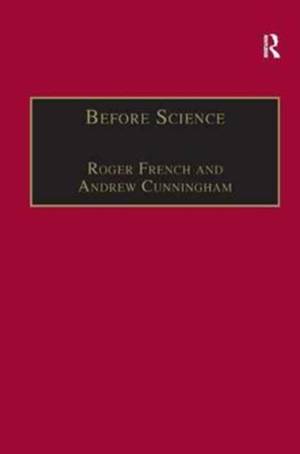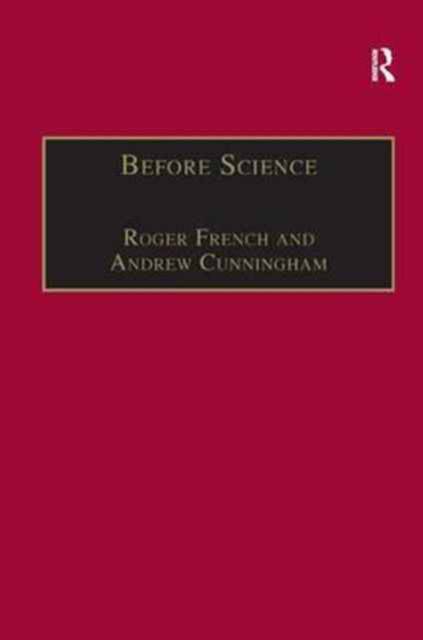
- Afhalen na 1 uur in een winkel met voorraad
- Gratis thuislevering in België vanaf € 30
- Ruim aanbod met 7 miljoen producten
- Afhalen na 1 uur in een winkel met voorraad
- Gratis thuislevering in België vanaf € 30
- Ruim aanbod met 7 miljoen producten
Zoeken
Before Science
The Invention of the Friars' Natural Philosophy
Roger French, Andrew Cunningham
Hardcover | Engels
€ 182,45
+ 364 punten
Omschrijving
The opposition of science and religion is a recent phenomenon; in the middle ages, and indeed until the middle of the nineteenth century, there was almost no conflict. In the Middle Ages the objective study of nature - the activity we now call science - was largely the province of religious men. This book looks at the origins of western science and the central role played by the Dominican and Franciscan friars. It explains why these two groups devoted so much intellectual effort to the study of physical and biological phenomena, and distinguishes 'Natural Philosophy' from 'science' as presently understood. Though the friars were recognisably 'scientific' in their approach their motives were religious - they wished to understand the mind of God and the beauty of God's nature. Even so, as this study makes clear, the roots of western science lie in the monasteries and refuges of the medieval friars - the direct forebears of the anti-scientific Popes of the age of Copernicus and Galileo.
Specificaties
Betrokkenen
- Auteur(s):
- Uitgeverij:
Inhoud
- Aantal bladzijden:
- 312
- Taal:
- Engels
Eigenschappen
- Productcode (EAN):
- 9781859282878
- Verschijningsdatum:
- 25/07/1996
- Uitvoering:
- Hardcover
- Formaat:
- Genaaid
- Afmetingen:
- 156 mm x 234 mm
- Gewicht:
- 562 g

Alleen bij Standaard Boekhandel
+ 364 punten op je klantenkaart van Standaard Boekhandel
Beoordelingen
We publiceren alleen reviews die voldoen aan de voorwaarden voor reviews. Bekijk onze voorwaarden voor reviews.











